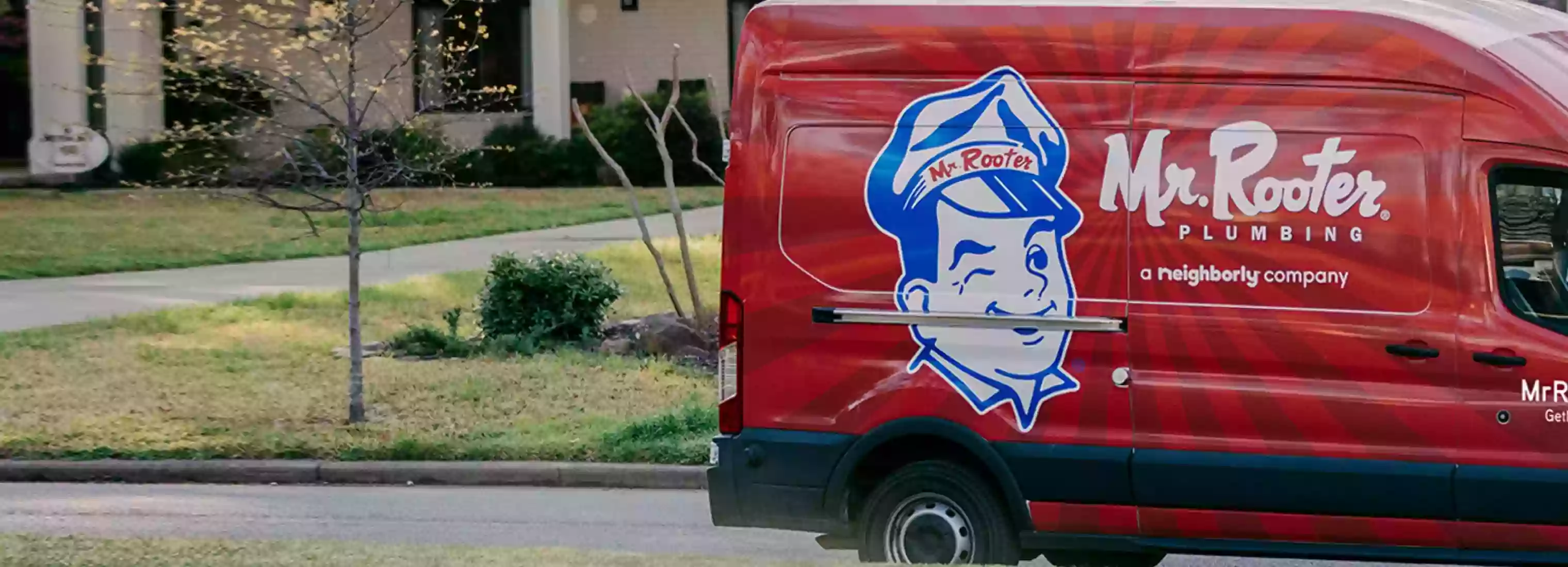Humidity and Rain Plumbing Problems in Dallas, Texas
It's another hot and humid spring or summer in Dallas, Texas. Going for a swim may feel amazing right about now, but we're sure you don't want your house to turn into a pool.
With its high rainfall and raging humidity, Dallas is a breeding ground for plumbing problems, which can lead to floods in your home.
Plumbing problems are difficult to catch before they turn into catastrophes and damage is already done to your home, but some signs are worth noting that can protect you and your family.
Keep reading to discover how to detect humidity and rain problems throughout your home as well as how to protect your home and your pipes from our great Dallas weather. We'll also let you in on the best Dallas Plumbing professionals in the business if you believe that you're having a water leak.
Signs That Your House May Be in Trouble
There are ways to recognize a leak before it causes your home to come crashing down. You can search for signs around your home and protect yourself from any problems in the future.
We will discuss how to recognize a potential leak, confirm that leak, and find potential leak locations throughout your home.
Discovering a Potential Leak
Finding a leak in your Dallas home may be as simple as finding water around your home, whether this is standing water or simply damp spaces.
If you find water that is lurking around your home without any known source, this water could be from a leak somewhere in your home. You can find this concerning water inside or outside the home. You may discover large puddles or small, damp spots.
Be sure to look around your water heater, in your yard, and throughout your hardwood floors for any standing water or damp spots. Other alarming signs of a water leak include buckling hardwood floors, soggy lawns, and warm places on the floor.
Keep this in mind: the place where you found the water may not be the only place where that water is. For example, if you found standing water on the hardwood floor in your living room, the water could also be in your walls and even your ceiling.
Here are more ways to look for leaks inside and outside of your home.
Confirming a Leak
There is one accessible and easy way to confirm a plumbing leak in your home. All you need is one thing: your city water meter. You can find this measure of water usage on the outside of your home.
First, you should turn off all sources of water inside and outside of your home. Turn off your washing machine, dishwasher, showers, baths, sinks, and other water sources within your home.
Now, go to your water meter and observe the gauge to see if the number is changing. Again, be sure that you have turned all of your water sources off. If the number is changing in front of your eyes, you have a significant leak that you should immediately call a professional to fix.
If the number is stagnant, you may still have a problem.
If the number on the gauge is not changing, try the sit-and-wait technique. Make a note of the number on the indicator now and return in about 15 minutes.
If the number changed in this amount of time, you may have a slow leak on your hands. A slow leak may not seem like an immediate problem, but a leak is a leak, and leaks are dangerous.
Locating a Leak
If you are bound and determined to locate a leak within your home, there are several common places where you can find a plumbing leak.
You may be able to find the most obvious leaks in your bathroom. There are many pipes that are running to your sink, toilet, and shower. Because of all of this, leaks are most likely to happen in your bathroom.
It is worth looking under your sink and around your toilet for any standing water or damp flooring. Look at the walls around these areas as well.
Another commonplace for leaks to occur is around your water heater. You use your water heater more than you think you do, and all of this use can cause regular leaks.
If you're worried about structural damages, you may want to look around ceilings and walls. Finding water leaks inside of your walls could quickly prevent your home from being destroyed.
Why Should You Care About Leaks?
Merely cleaning up puddles of water in your home will not get rid of the problem. Cleaning up visible water collections may delay damage, but this does not fix the leak or protect your home or you.
We feel it is important that you understand exactly how water leaks can compromise the structure of your home and endanger you personally.
Damage to Home
Water can cause significant damage to your home, especially when it is building up over time from a leak that you may not have noticed until just now. Damage to your home can range from a ruined floorboard to an entire floor caving in.
Water can cause a breakdown in your home's structural integrity. The decline due to arrosion and weight over time can cause your entire house to crumble.
Homes with more than one story are even more at risk since water that is building up on the second floor can cause problems with the ceiling of the first floor. Weight building up from water leaking on the second floor can lead to the second floor falling onto the first floor, especially if the second floor has heavy furniture or appliances.
Remember: the best way to protect your home is to identify the problem quickly. Once you have identified the problem, a professional can come to your home and fix it in order to prevent ongoing damage.
Damage to Health
Many people worry about water damage to their homes and forget about the damage that water leaks can do to their bodies.
Disgusting mold and mildew can collect over time and invade your body. Yes, invade your body!
Fungi, like mold and mildew, thrive in moist environments like those created from plumbing problems and water leaks. Because of this abundance of water in a warm climate, mold and mildew are common byproducts of water leaks.
As they grow in this nutrient-rich environment, mold and mildew create spores that can cause damage to the human respiratory system over time. You may start having many symptoms that seem allergy-like and irritant in nature. These symptoms include the following:
- sneezing
- coughing
- red, itchy eyes
- fatigue
- sore throat
The Centers for Disease Control (CDC) provides excellentresources for protecting yourself against mold. Knowing how to take care of mold is vital in protecting you and your family. The CDC also advises that these symptoms can be made worse for those with pre-existing conditions, such as asthma and chronic obstructive pulmonary disease (COPD).
If you begin experiencing these symptoms, it is worth having your home checked for mold, mildew, and the like. Your health could be at risk.
Rain Plumbing Problems in Dallas
There are a few plumbing problems that are specific to Dallas because of its weather. Dallas, Texas is widely known for its persistent humidity and abundant rainfall.
Don't worry. We are experts on Texas plumbing and Dallas humidity.
Hard Water
We call water "hard water" when it is high in mineral contents. Unlike mold and mildew, hard water does not pose a health risk and does not cause symptoms within the human body.
However, hard water can cause corrosion and buildup in your pipes over time. This slow accumulation may lead to leaks or even bursts.
If you live in Dallas, Texas, it may be worthwhile to buy a water softener. Here are some ways to know if you need a water softener.
Slab Leaks
Because Dallas has high rainfall percentages and humid weather to go with it, slab leaks are widespread.
The moisture from the rain and humidity build up over time in the Texas clay, causing the ground to become very damp. Sponging up this water can cause the ground to shift and damage or break underground pipes.
Even in the dry, summer months, slab leaks can cause issues. The clay in the ground can dry out and cause the pipes to move lower, increasing the pressure placed on them.
This constant movement back and forth can put wear and tear on your pipes. Understanding the fluctuations in Texas weather can help you combat any potential leaks and maintain your home's structural integrity.
Freezing Pipes
Dallas winters are becoming more brutal every year. Temperatures keep dropping, and residents aren't prepared to handle the snow and ice that comes with such cold weather.
As water freezes, it expands into ice. If water is in your pipes when it grows, this may lead to the pipes cracking and bursting. This damage is why it's essential to protect your faucets from freezing.
Damage From Humidity
Dallas, Texas is an area that persistently has high humidity. Your home is not able to adapt over time like the human body is, so it is vital to protect your home and ensure adequate maintenance.
The major problem with humidity is the mold and mildew that can come with it. Remember that mold and mildew both love warm, moist environments and grow spores that can harm humans when they thrive in these environments.
Appliances are also more likely to break down in humid environments because of the moisture in the air.
Tree Roots
Although unsuspected, tree roots can cause problems with your pipelines underground. As our beautiful Dallas trees grow out, they can puncture and penetrate sewer lines around it.
Professionals can remove tree roots and solve the problem effortlessly if you can catch the problem quickly. However, if you wait too long before noticing the problem, it can cause the entire line to break.
Tree roots are suspected when clogging becomes a persistent issue in the home. If you are experiencing drainage problems like this, it is worth contacting a professional who can diagnose and treat the problem correctly.
Here's What You Should Do Now
Now that we've identified the leak and talked about how the leak can affect your health and your home, it is crucial to take the next steps.
Immediately Protect Yourself and Your Family
The very first thing you should do is to shut off all water running through your home. Don't just turn off your faucets and stop using your showers.
Turn off the main water valve. Turning off the main source of water is the most effective step in stopping any further damage to your home before a professional can arrive to help.
Next, remove what belongings and valuables you can from your home. Start with your most valuable items just in case something were to happen in the time that you're moving stuff. Removing your items will prevent them from being damaged and make it easier for your plumber to do their job.
While waiting for your professional to arrive, you should try to soak up all of the water that you can. While this will not reverse any damage that has already been done, it will prevent any future damage from happening.
You should also call the water company and alert them to the issue, especially if you believe that the leak may be from their end.
We also believe that it is worth noting that there is a way to prevent this in the future: regular maintenance. Maintaining your home and ensuring avoidance of plumbing problems can save your home and your family from disasters in the future.
Call a Professional
If you believe that you have any rain plumbing problem in your Dallas home, give Mr. Rooter Plumbing of Dallas a call at (214) 838-8232. We are experts in all of your Dallas-specific needs.
With decades of experience in the industry, we have all of the tools to fix your home and save your home from any further damage. Our residential plumbing services are top-notch, and we're known for excellent customer service. Come see why they call us Mister!
 Click to call
Click to call


